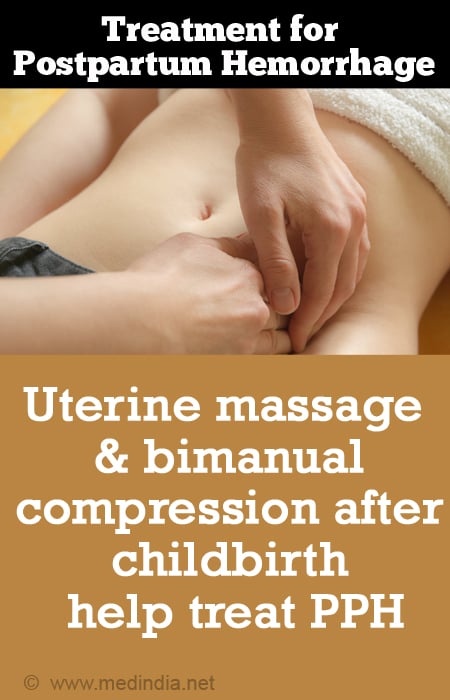What Does Beautiful Journey Reproductive Counseling Center Mean?
What Does Beautiful Journey Reproductive Counseling Center Mean?
Blog Article
The Main Principles Of Beautiful Journey Reproductive Counseling Center
Table of ContentsThe 30-Second Trick For Beautiful Journey Reproductive Counseling CenterBeautiful Journey Reproductive Counseling Center for BeginnersSome Known Details About Beautiful Journey Reproductive Counseling Center Fascination About Beautiful Journey Reproductive Counseling CenterUnknown Facts About Beautiful Journey Reproductive Counseling CenterThings about Beautiful Journey Reproductive Counseling Center

Collaborating with psychological health experts is a fantastic way to learn more about postpartum depression and exactly how to recuperate. Therapy allows women to resolve their problem and recognize the development they make. Specialists can likewise adjust therapy in action to the lady's progress. Treatment is an individual and crucial method to treat postpartum depression.

A Biased View of Beautiful Journey Reproductive Counseling Center
There have not been definitive studies published that looked especially at folate or various other B vitamins in the treatment of postpartum depression. Take into consideration suggesting to females who are postpartum to continue their prenatal vitamin or take a B-100 facility with about 1 mg (or 1,000 mcg) of folic acid, or folate.
Modification of vitamin D shortage might play a substantial function in the healing from postpartum anxiety. Moms fighting with clinical depression needs to have their 25-OH vitamin D degree examined. Lots of women find that they require at the very least 2,000-3,000 IUs of cholecalciferol, which is vitamin D3 (a type that is extremely conveniently taken in) throughout the winter season months.
In the summer season, much less oral vitamin D may be required, depending upon the latitude where the mom lives. perinatal counseling.
The 15-Second Trick For Beautiful Journey Reproductive Counseling Center

[15, 16 (https://www.awwwards.com/beaj0urepcc/)] Anticoagulation may be used, and it must be noted that there exists no global standard or recommendation for anticoagulation treatment in septic pelvic thrombosis. Initial bolus of 60 units/kg (4000 units optimum) complied with by 12 units/kg/h (optimum of 1000 units/h) is suggested. [6] The aPTT is kept track of for 2-3 times the regular value.
Postpartum clinical depression (PPD) is a complex mix of physical, psychological, and behavior changes that take place in some women after delivering. According to the DSM-5, a manual utilized to detect mental conditions, PPD is a kind of major clinical depression that begins within 4 weeks after shipment. The medical diagnosis of postpartum depression is based not only on the length of time in between delivery and beginning however on the extent of the depression.
The term explains a variety of physical and emotional modifications that lots of brand-new moms experience. The actual link between this drop and depression is still not clear.
Beautiful Journey Reproductive Counseling Center for Beginners
Commonly, joining a support group of brand-new mommies or speaking with various other mommies helps. can take place a couple of days or even months after giving birth. PPD can take place after the birth of any youngster, not just the initial kid. You can have feelings comparable to the baby blues-- despair, anguish, anxiety, crankiness-- however you feel them far more strongly.
When your capability to feature is influenced, you need to see a health and wellness treatment copyright, such as your OB/GYN or main treatment physician. If you don't obtain therapy for PPD, signs can get worse.
This ailment can happen swiftly, often within the first 3 months after childbirth. Females can shed touch with reality, having auditory hallucinations (hearing things that aren't actually taking place, like a person talking) and delusions (strongly believing things that are clearly unreasonable). Aesthetic hallucinations (seeing points that aren't there) are much less usual.
Females that have postpartum psychosis demand treatment right away and practically always need medication. In some cases females are taken into the hospital because they are at risk for hurting themselves or someone else. Postpartum depression is discriminated, depending upon the type of symptoms and how severe they are. Therapy options include anti-anxiety or antidepressant medications, psychiatric therapy, and engagement in an assistance team for emotional support and education.
Excitement About Beautiful Journey Reproductive Counseling Center
Youngsters of moms with postpartum clinical depression are most likely to have issues with resting and eating, sobbing even more than normal, and delays in language advancement. If you have a background of depression, tell your medical professional as soon as you discover out you're pregnant, or if you're preparing to conceive.
PPD can take place after the birth of any child, not just the initial youngster. You can have sensations similar to the baby blues-- unhappiness, anguish, anxiousness, crankiness-- yet you feel them a lot extra highly.
When your capacity to feature is influenced, you require to see a health and wellness treatment supplier, such as your OB/GYN or main treatment physician. If you don't get therapy for PPD, symptoms can get even worse.
This ailment can take place swiftly, usually within the initial 3 months after giving birth. Ladies can shed touch with truth, having auditory hallucinations (hearing points that aren't really occurring, like a person chatting) and misconceptions (strongly believing things that are clearly irrational). Aesthetic hallucinations (seeing points that aren't her response there) are less common.
What Does Beautiful Journey Reproductive Counseling Center Mean?
Females who have postpartum psychosis demand therapy right away and almost always need medicine. Therapy options include anti-anxiety or antidepressant medicines, psychotherapy, and involvement in an assistance team for psychological assistance and education and learning.
Children of mothers with postpartum anxiety are most likely to have troubles with resting and eating, crying even more than usual, and delays in language advancement (postpartum therapy). If you have a history of depression - https://pxhere.com/en/photographer/4226096, tell your physician as quickly as you discover you're expecting, or if you're preparing to come to be expectant
Report this page